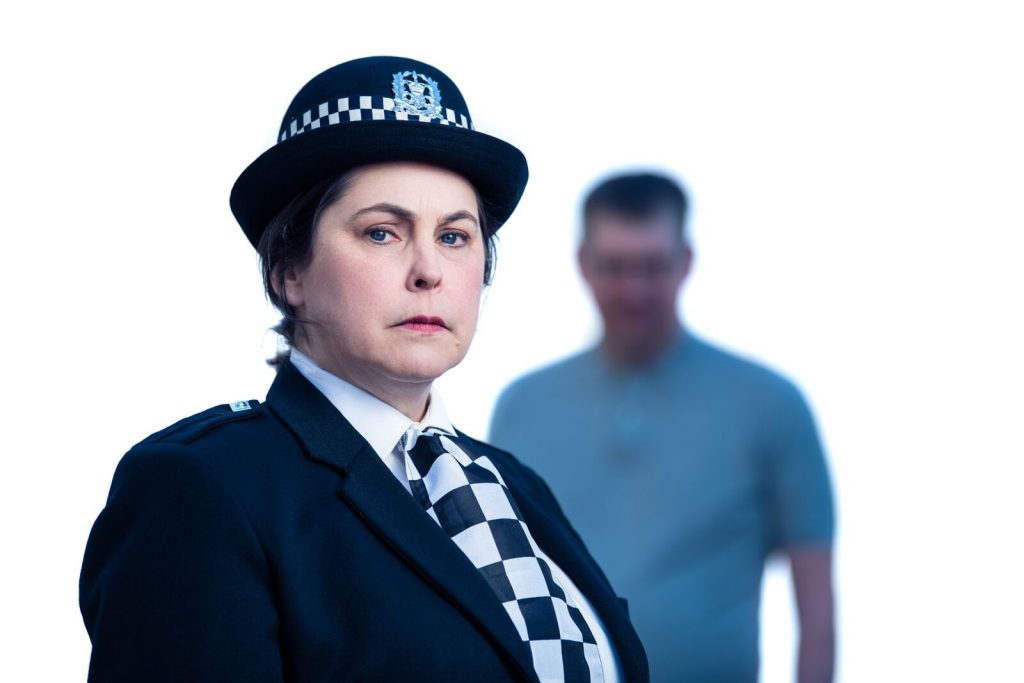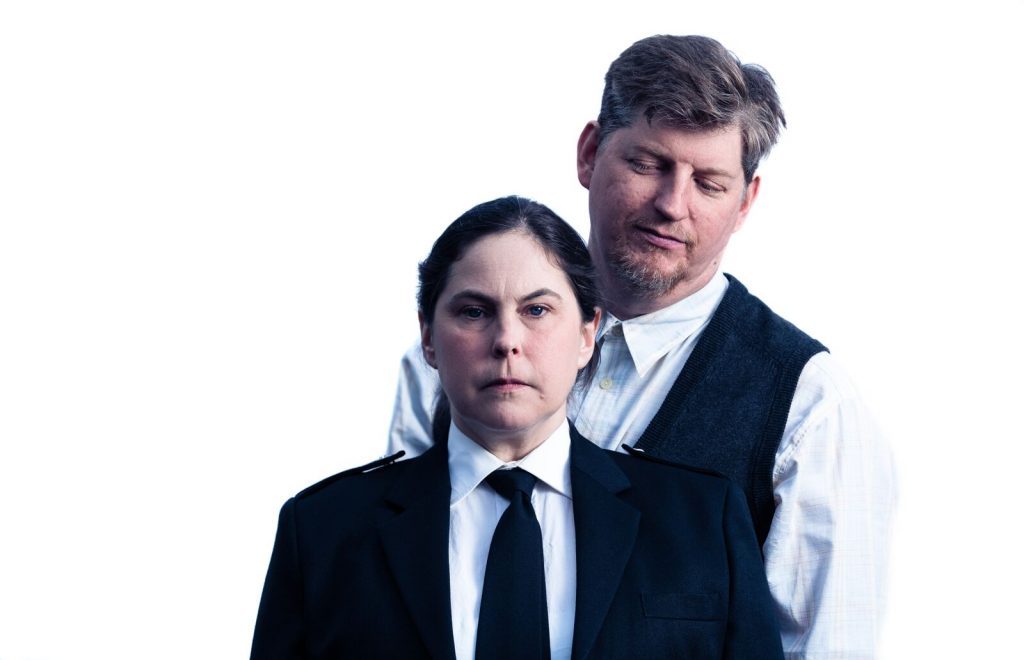
Credit: Derek Fu
At Jericho Arts Centre in repertory until August 17, 2018. 7:30 PM curtain.
Tickets from $24 at ensembletheatrecompany.ca
Posted July 26, 2018
Shakespeare wrote long but he had something to say. Ian Rankin and Mark Thomson, who wrote Dark Road, wrote long but are only mildly entertaining.
Set in Edinburgh (with dialect coach Eileen Barrett keeping the Scottish brogue rolling out), Dark Road premiered in 2013 and is classified as ‘tartan noir’. Part of Ensemble Theatre Company’s summer festival, it runs in repertory with A Few Good Men and The Beauty Queen of Leenane.
It might have been the heat last evening but 7:30-10:10 PM is too long to sustain a thriller like Dark Road; Act 1 is an hour and a half and it is not only repetitive but it goes almost nowhere. Everything interesting happens in Act 2. And by interesting – spoiler alert – I mean shootings and knifings.
Anyone who watches crime shows on TV knows all the tropes: a decent, hard-working cop – in this case Isobel McArthur (Rebecca Walters) wonders if Alfred Chalmers (Paul Herbert), a serial murderer she put away 25 years ago, might be innocent. She goes digging through old evidence and finds some critical item missing; the forensics are suspect. She’s obsessive to the extent she has alienated her out-of-wedlock, eighteen-year-old daughter Alexandra (Alysson Hall), a budding documentary filmmaker.

Credit: Derek Fu
There’s creepy stuff: Isobel purchased the house of Sarah, the last of Chalmers’ four victims. Why? She says it was because it was cheap. Really? Is that all? And there’s peculiar stuff: Alexandra lives at home and has regular, very, very noisy sex in the adjoining room. Hmmm, strange parenting. Not necessarily the sex, but definitely the noise.
Another familiar trope: Isobel’s colleague and former lover Frank (Anthony Santiago) and retired superintendent Fergus (David Wallace) both try very, very hard to dissuade Isobel from pursuing the case. Now why would that be?
Under Chris Lam’s direction, there are some solid performances here – especially Santiago who, as Frank, seems either to be carrying a torch for Isobel years after their breakup, or is just horny, having had too much to drink. Frank also seems to be slightly turned on by Isobel’s daughter who seems to have a boyfriend perpetually stationed in the bedroom from which he calls, forlornly, “Alexandra. I’m lonely. Alexandra, c’mon.” Won’t someone tell him to put a cork in it? Or, better yet, to get dressed and go home?
Walters is credible as the sturdy, hard-working cop, now Chief Superintendent, but not credible as Frank’s former lover. There’s just no chemistry happening there.
And although you’d like to kick Alexandra out of the house – she’s rude and petulant and ungrateful to her single mom – Hall does a good job of being a young woman who comes to a rude awakening. Herbert, as the killer, is at least complex: did he or didn’t he kill those women? Herbert brings something akin to amiability to the role.
Apart from a couple of fantasy scenes, this is a movie of the week.
Some blocking problems could be readily fixed: Walters frequently sits at a desk with her back always to the audience on the east side. And in the scenes between Isobel and Chalmers, they are way upstage; since this is theatre and not film and our imaginations are allowed to play, why not put those conversations up close where they would have much more impact?
The Guardian’s Mark Fisher concluded, after a tepid review, “. . . but by the end, when the play lurches into Victorian melodrama, we’re left with the empty feeling of a story which, however well told, lacks resonance.”
What does resonate? Good guys finish last – or, worse, dead. Crime does pay. People who work in mental hospitals are easily manipulated. O-kay.

